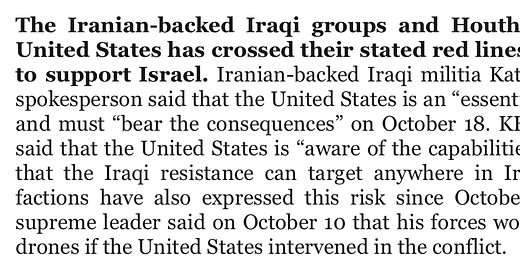There is a real risk that Israel and the United States will get drawn into a war with Hezbollah and other Iranian proxies, and Iran itself.
The idea that all the US has to do is deter Iran and server as Israel’s arsenal is wrong. Biden seemed to imply that the American deterrent threat is the air weapon. But that may not be enough. The attrition imposed…
Keep reading with a 7-day free trial
Subscribe to Policy Tensor to keep reading this post and get 7 days of free access to the full post archives.



